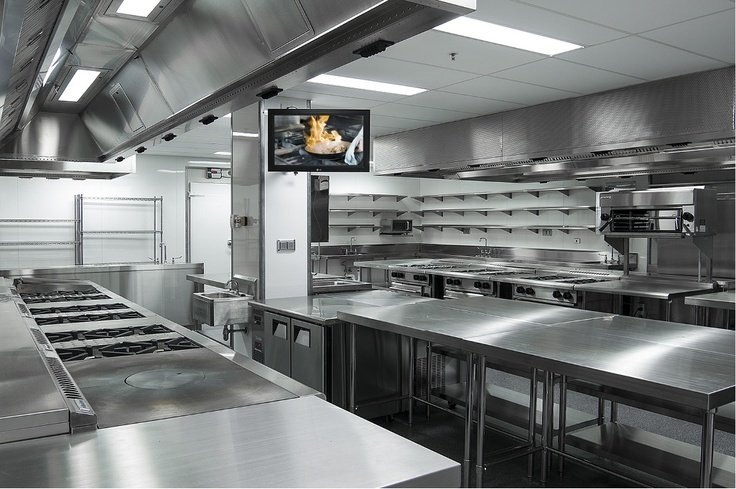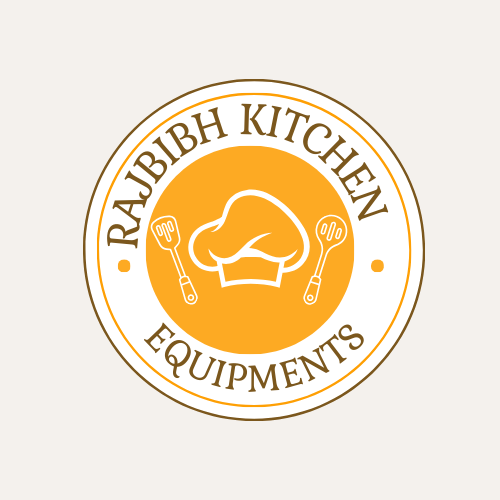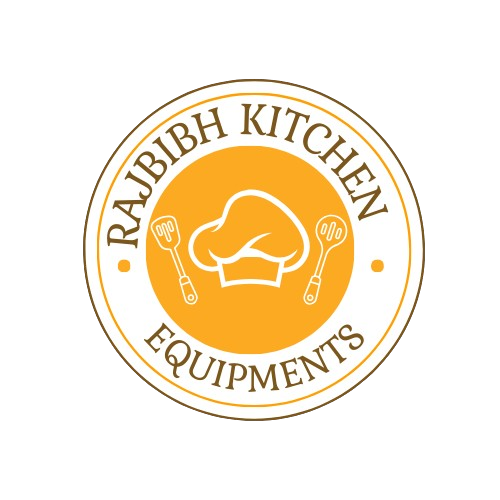When it comes to running a successful restaurant, cafeteria, catering service, or any other foodservice business, the right commercial kitchen equipment is crucial. Not only does it enhance efficiency, but it also ensures that your food is prepared quickly, consistently, and to the highest standards. From cooking appliances to storage solutions, having the best kitchen equipment can make all the difference. This comprehensive guide covers the most important types of commercial kitchen equipment and how to choose the right tools for your business.
1. Commercial Cooking Equipment
Commercial cooking equipment is the backbone of any professional kitchen. This includes appliances that help you prepare food quickly and efficiently. Below are some essential cooking tools for your commercial kitchen:
- Ranges and Ovens: These are among the most critical pieces of equipment in any kitchen. Ranges come in different styles, such as gas, electric, and induction, and can be paired with ovens for even more versatility.
- Griddles: Perfect for grilling, frying, and cooking a variety of food items, from pancakes to burgers. A high-quality griddle is an essential tool for busy kitchens.
- Deep Fryers: For cooking fried foods quickly and evenly, deep fryers are indispensable in commercial kitchens. Whether you’re making french fries, chicken wings, or fish fillets, a reliable deep fryer is key.
- Convection Ovens: These ovens use a fan to circulate heat, providing even cooking and baking. They’re ideal for large batches of food that require consistency and efficiency.
2. Food Preparation Equipment
In a commercial kitchen, food prep is a big part of the workflow. The right food preparation tools can save time, reduce waste, and ensure consistency. Some popular food prep equipment includes:
- Food Processors: These versatile machines are essential for chopping, slicing, dicing, and pureeing ingredients in large quantities. With the right attachments, food processors can help with tasks ranging from kneading dough to making sauces.
- Blenders and Mixers: Blenders are perfect for smoothies, soups, and sauces, while stand mixers are essential for dough, batter, and cake preparation.
- Slicers: A commercial slicer is perfect for slicing meats, cheeses, and vegetables quickly and uniformly. Ideal for delis, sandwich shops, and any business that deals with cold cuts.
- Cutting Boards and Knives: While not technically machinery, having high-quality cutting boards and knives in various sizes is essential for efficient food preparation.
3. Refrigeration and Storage Equipment
Proper refrigeration is a must for maintaining food safety in a commercial kitchen. Depending on your business type, different types of refrigeration equipment may be necessary. Here are some options to consider:
- Reach-In Refrigerators and Freezers: These are essential for quick access to fresh ingredients and keeping perishables at the right temperature. Available in various sizes to suit your space and needs.
- Undercounter Refrigerators: These units are ideal for small kitchens or when you need refrigeration close to your cooking area.
- Walk-In Coolers and Freezers: For large-scale operations, walk-in coolers or freezers offer ample space for storing bulk ingredients, and they’re perfect for high-volume foodservice businesses.
- Ice Machines: Whether you’re in the foodservice or beverage industry, an ice machine ensures you have a steady supply of ice for drinks, salads, or food preservation.
4. Cleaning and Sanitation Equipment
Keeping a kitchen clean is essential not only for food safety but also for maintaining a productive environment. Some must-have cleaning equipment includes:
- Dishwashers: Commercial dishwashers are designed for heavy-duty cleaning. They can handle everything from dishes to utensils to cooking equipment, ensuring quick and efficient washing.
- Garbage Disposals: A commercial-grade garbage disposal helps to quickly dispose of food scraps, keeping your kitchen clean and sanitary.
- Cleaning Supplies: In addition to dishwashing equipment, your kitchen should be stocked with commercial-grade cleaning supplies such as sanitizing chemicals, floor scrubbers, and microfiber cloths.
5. Smallwares and Accessories
While the larger appliances in your kitchen are vital, it’s also important to have the right smallwares and accessories to facilitate the smooth running of the kitchen. These include:
- Cookware: Commercial-grade pots, pans, and baking sheets should be sturdy and capable of withstanding heavy use.
- Serving Tools: Tongs, spatulas, ladles, and other tools are essential for serving food efficiently and safely.
- Storage Containers: Proper storage of ingredients, leftovers, and prepared food is vital for food safety. Use clear, stackable containers that are easy to label and store.
6. Choosing the Right Commercial Kitchen Equipment
When selecting the right equipment for your business, several factors should be considered:
- Size and Space: Measure your kitchen carefully to ensure that your equipment fits within the available space. Don’t forget to account for proper airflow and room for employees to move freely.
- Capacity: Your kitchen equipment needs to be able to handle the volume of food you prepare on a daily basis. Ensure that you invest in equipment with sufficient capacity for your business.
- Energy Efficiency: With rising energy costs, investing in energy-efficient equipment can save you money in the long run. Look for Energy Star-rated appliances and those that reduce energy consumption.
- Quality and Durability: Commercial kitchen equipment should be built to last, often with heavy-duty materials and components. Always choose reputable brands known for their reliability.
- Budget: While it’s tempting to choose cheaper options, investing in quality equipment will save you money in the long run by reducing the need for repairs and replacements.


